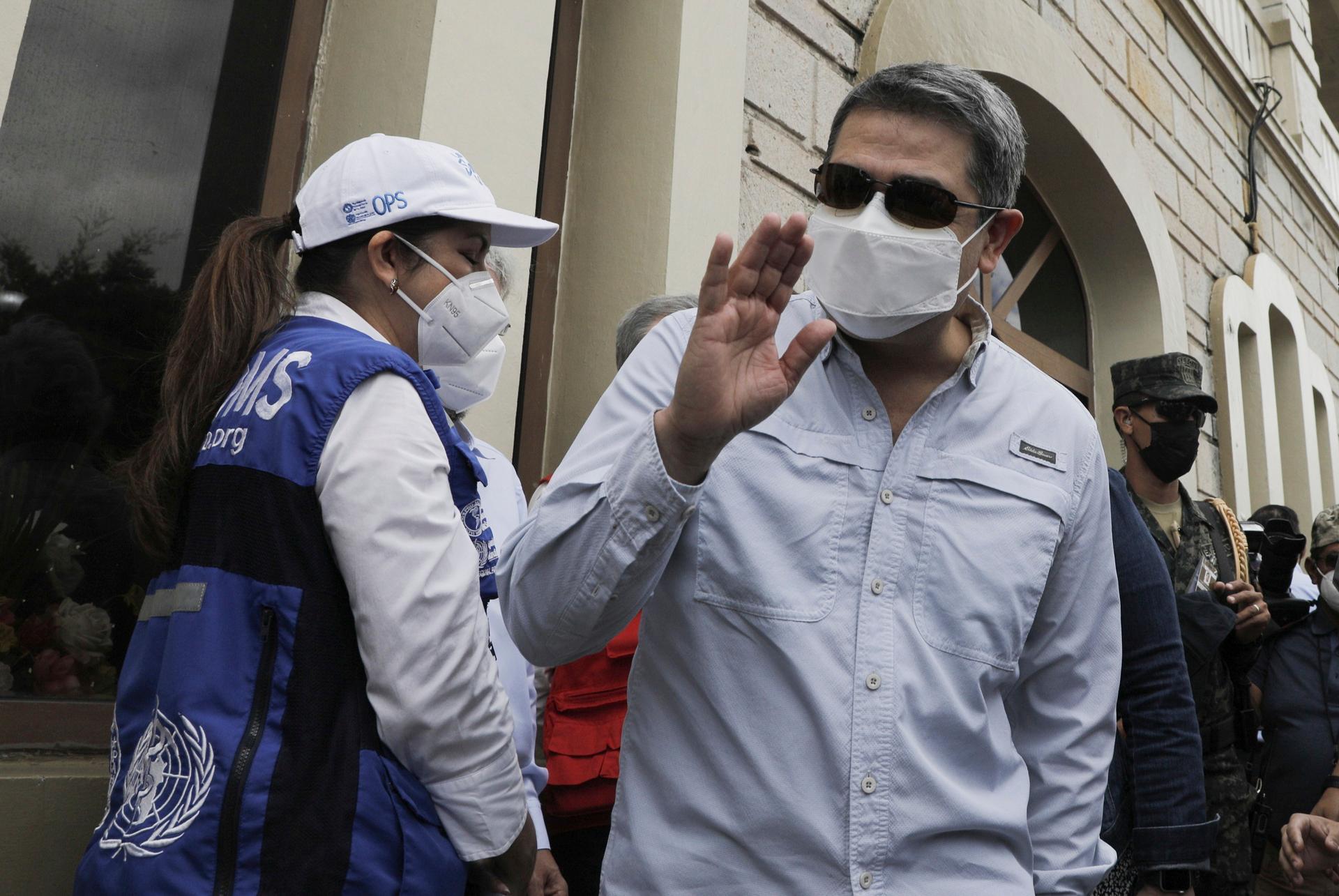Dr. Luis Romero Reyes, a pediatrician specializing in infectious diseases in the Honduran city of San Pedro Sula, has been treating patients with the coronavirus and closely following news about the country’s vaccine rollout.
He was also one of the first people in the country to get a shot in February. By March 13, Honduras had received 53,000 vaccine doses. Even so, he doesn’t know when Honduras will be able to get more vaccine doses and he worries about those waiting.
Related: Russia expands ‘soft power’ in Latin America with Sputnik vaccine
Not to mention, if it’s hard for him as a medical professional to keep tabs on things, he says, it’s worse for the general public. Needless to say, when he got the Moderna shot, he says, it felt bittersweet.
“Unfortunately, it was just scraps. We could only give vaccines to a few people, and it was because of a donation. I wish all medical workers could’ve gotten a dose at the same time.”
“Unfortunately, it was just scraps,” Romero Reyes said. “We could only give vaccines to a few people, and it was because of a donation. I wish all medical workers could’ve gotten a dose at the same time.”
In Honduras, the vaccination process is riddled with uncertainty, with the country ranking with one of the lowest vaccination rates in the hemisphere, far behind wealthier nations.
Honduran officials expect to get enough doses to vaccinate 4.7 million people, or 81.5% of the population, to reach herd immunity by the end of this year, according to Dr. Ida Berenice Molina, head of the country’s national vaccine program. But it is unclear where those doses will come from, and when — and independent public health observers in the country say they expect the process to last at least until the end of next year.
Related: Mexico’s COVID-19 wards are full. Many patients who can’t get oxygen die at home.
Honduras, which has a population of 9.4 million, got a shipment of 48,000 doses of the AstraZeneca vaccine on March 13 from the World Health Organization’s COVAX program. And last month, the Israeli government donated 5,000 doses of Moderna to the country.
Honduras has made arrangements for 3.9 million doses pledged to be donated by the COVAX program by the end of 2021, and 4.2 million to be purchased from the Gamaleya Institute in Russia, Molina said. But the delivery schedule for most of those doses is up in the air.
The vaccines will be administered in three phases, Molina said. The rollout plan is similar to what’s been done elsewhere: They’ll start by vaccinating front-line workers, then the elderly and people with health issues, and eventually, everyone over the age of 18, except for pregnant women.
Still, there is great confusion in the country about the process, and Molina says it’s because of misinformation fueled by the politics surrounding the country’s presidential election in November. The primary elections were held this month.
“I have never seen as many vaccine experts as I see today.”
“I have never seen as many vaccine experts as I see today,” said Molina, who has headed the country’s national vaccine program since 1993.
Honduran health officials have been criticized for not moving more swiftly to buy vaccines. But either way, they’re facing massive competition to get in line with manufacturers.
According to Bloomberg, the world’s richest countries — including Australia, the United Kingdom and the United States — are all clogging up the queue as of early March, ordering more doses than they need.
The ethics of vaccine distribution are complicated. It’s logical for rich countries to tend to their populations first for internal and external reasons, said Jim Thomas, an associate professor of epidemiology and public health ethicist at the University of North Carolina at Chapel Hill. For example, the US, with the highest number of cases in the world, is more likely to be an origin of variants that could spread beyond its borders.
“So, in one sense, we are more of a threat to Honduras than Honduras is to us,” Thomas said. “But ethically, it is wrong to [over-order] and tie up the system for other countries.”
Plus, in order for vaccines to be effective, he says, a large portion of the global population has to get them. So, as long as Honduras and other countries in the back of the line remain unvaccinated, he adds, that will pose issues for everyone else.
